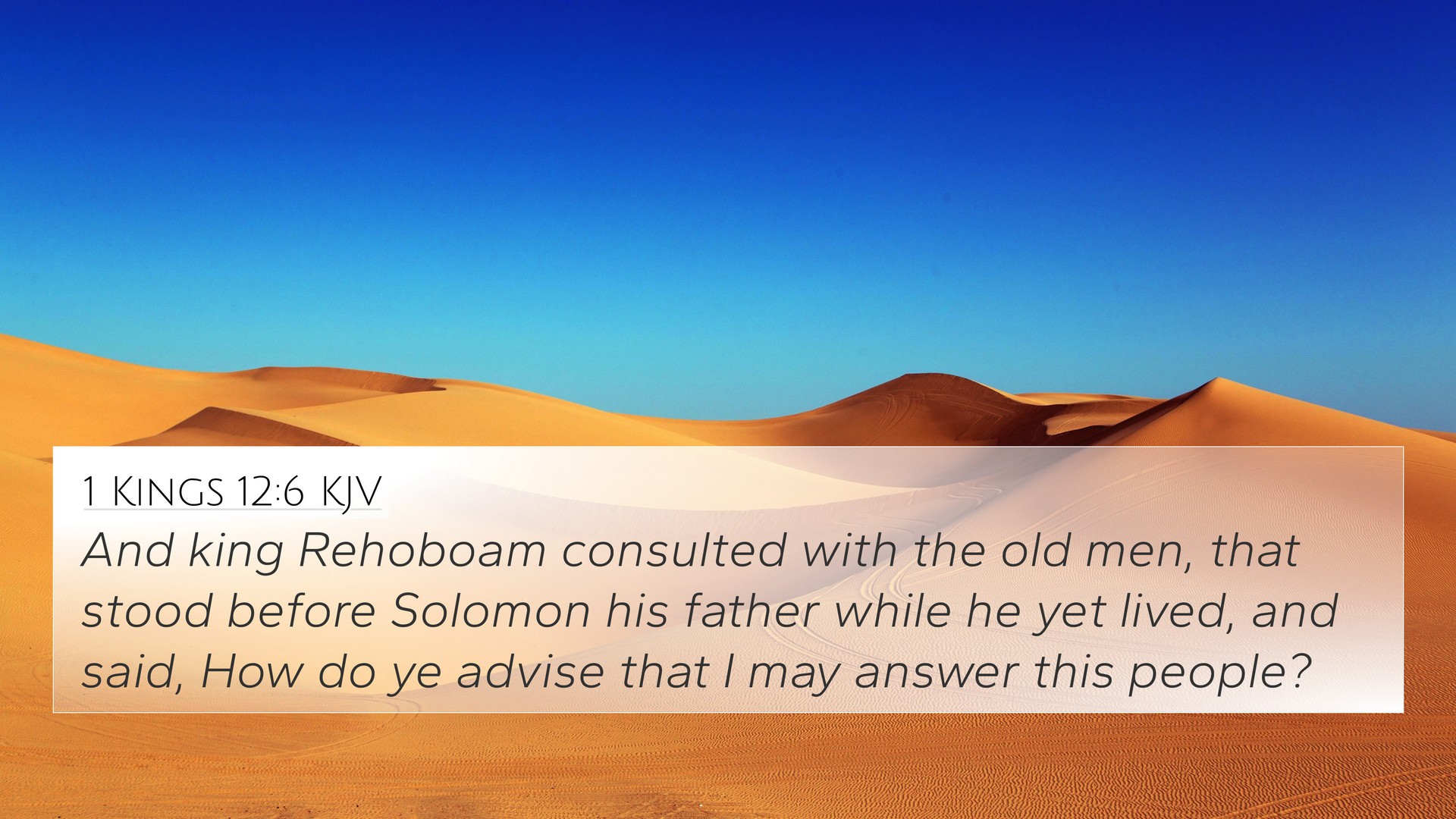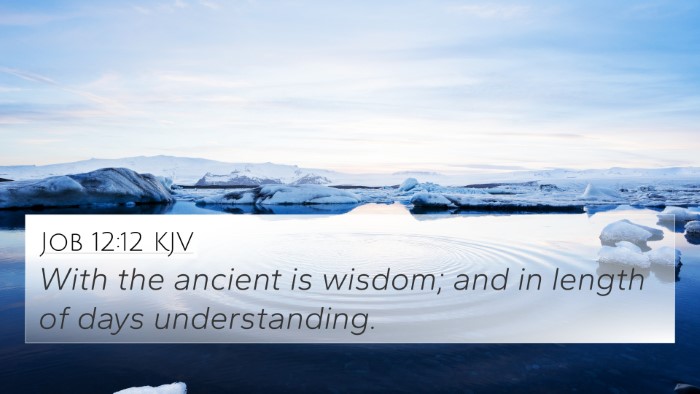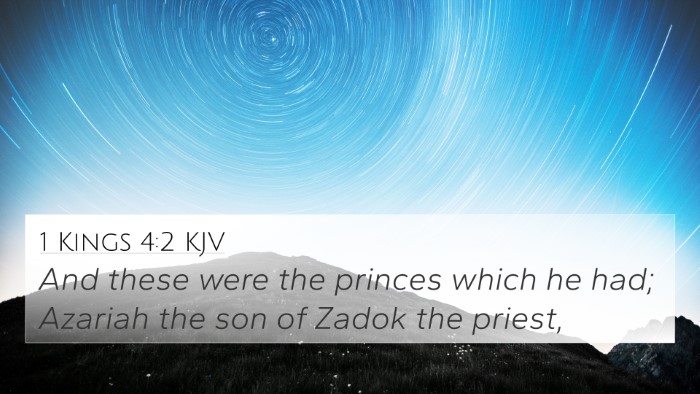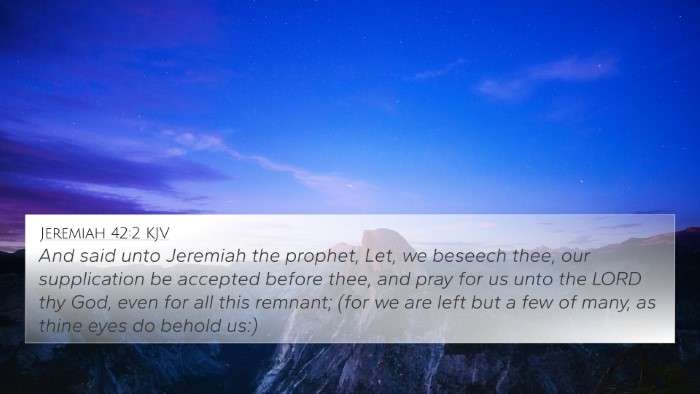Meaning and Interpretation of 1 Kings 12:6
Verse Context: 1 Kings 12:6 states, "And King Rehoboam consulted with the old men, who stood before his father Solomon while he yet lived, and said, How do you advise that I may answer this people?" This moment marks a significant point in Israel's history where Rehoboam must decide how to govern the people amid a growing discontent following Solomon's reign.
Summary of Insights: The verse illustrates the importance of seeking wise counsel, especially from those with experience and wisdom. Rehoboam's choice to consult the elders sets the stage for the pivotal decision he makes that leads to the division of the kingdom. Public domain commentaries highlight different facets of this choice and its implications on leadership and governance.
Commentary Insights
-
Matthew Henry:
Henry emphasizes the significance of Rehoboam consulting the old men, noting that it reflects a moment of opportunity for wise leadership. The advice he receives has the potential to shape the future of Israel. Henry warns of the risks in disregarding experienced counsel, suggesting that this moment foreshadows the consequences of Rehoboam's eventual actions.
-
Albert Barnes:
Barnes focuses on the contrast between the wise counsel of the elders and the radical approach that Rehoboam ultimately takes. He asserts that listening to wisdom is crucial for leaders, as it reflects an understanding of the needs and sentiments of the people. This point highlights the theme of leadership responsibilities within the Biblical narrative.
-
Adam Clarke:
Clarke draws attention to the inherent conflict in Rehoboam’s situation, noting the expectations of the people and the heritage of Solomon. He elaborates on how the counsel he receives is not merely about governance but about understanding the pulse of the populace. Clarke links this moment to the broader theme of the relationship between the ruler and the ruled in Biblical texts.
Bible Cross References
This verse is interconnected with several other passages, offering a richer understanding of its implications:
- Proverbs 11:14: "Where no counsel is, the people fall: but in the multitude of counsellors there is safety." This underscores the value of seeking guidance.
- James 1:5: "If any of you lack wisdom, let him ask of God, that giveth to all men liberally, and upbraideth not; and it shall be given him." This verse further emphasizes the value of seeking wisdom.
- 1 Chronicles 12:32: "And of the children of Issachar, which were men that had understanding of the times, to know what Israel ought to do..." This highlights the importance of understanding and wise counsel.
- Proverbs 15:22: "Without counsel purposes are disappointed: but in the multitude of counsellors they are established." Reiterates the necessity of counsel in decision-making.
- Isaiah 31:1: "Woe to them that go down to Egypt for help; and stay on horses, and trust in chariots, because they are many; and in horsemen, because they are very strong; but they look not unto the Holy One of Israel, neither seek the Lord!" Warns against misplaced trust in human wisdom without divine guidance.
- Exodus 18:19-20: Jethro's advice to Moses about delegating authority emphasizes the need for wise counsel and leadership.
- Jeremiah 6:16: "Thus saith the Lord, Stand ye in the ways, and see, and ask for the old paths, where is the good way, and walk therein..." It connects the importance of wisdom from previous generations.
Thematic Connections
The various commentaries present a thematic joining of this verse with broader concepts in scripture:
- Wisdom vs. Folly: The crucial choice between the wise counsel of elders and the potential folly of youthful impulsiveness is a recurring theme.
- Leadership and Governance: The responsibilities and expectations of a leader emerge prominently in Rehoboam's narrative, providing a study of effective leadership as seen in Solomon's reign.
- Divine Guidance: The need for divine wisdom in decision-making aligns with numerous other Biblical texts that call for reliance on God's understanding.
Conclusion
1 Kings 12:6 serves as a compelling reminder of the importance of counsel in leadership decisions. Public domain commentaries express that Rehoboam's choice to consult wise men is a pivotal moment reflecting the need for experienced guidance. The ensuing events illustrate the dramatic consequences of his decisions, aligning with the overarching themes of wisdom, leadership, and the relationship between rulers and their subjects throughout scripture. Cross-referencing this verse with others enriches our understanding of Biblical leadership dynamics and the consequences of heeding or ignoring wisdom.
Call to Action: To further explore the connections between Bible verses, consider using tools for Bible cross-referencing or a Bible concordance. This can deepen your understanding of how scriptures relate to each other, enriching your overall Bible study experience.










